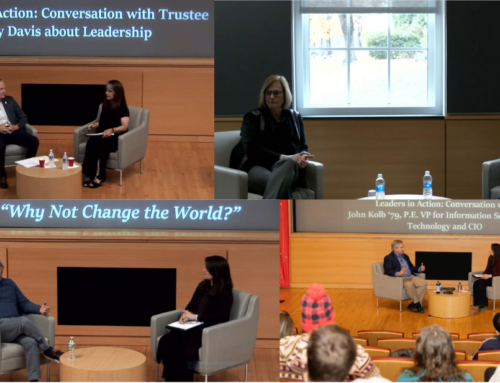By Bonnie Blumer
It all began in the fourth grade when Randy Gordon ’96 wanted to learn string bass. The strings teacher told him he was too short, and suggested cello. The disappointment soon dissipated when Gordon found that he loved the cello and loved the orchestra — specifically the way a group of individuals could come together and create a whole that was greater than the sum of its parts.
Gordon took lessons at The Hartt School of Music at the University of Hartford and then enrolled as a student when he graduated high school. He spent the next four years practicing for hours at a time, perfecting his craft, and mastering the most difficult pieces while rehearsing or playing with full orchestras and string quartets.
But there came a time when playing the same unchallenging songs at various gigs — with occasional opportunities to play with orchestras — was not enough. So, Gordon pivoted, into insurance, which was not altogether surprising given his father was in the business and Hartford, Connecticut, is known as the “insurance capital of the world.”
Following the advice of his father-in-law, James L. Derby Jr., a Class of 1958 alumnus of Rensselaer at Work, the Rensselaer graduate program in Hartford, and a 1953 graduate of the Rensselaer mechanical engineering program, Gordon enrolled in Rensselaer at Work and took his first-ever class in accounting — and loved it. For the next few years, he took one class at a time until he earned his master’s degree in financial services.
Eventually, Gordon took his degree and experience to the financial sector, where he ended up at Merrill Lynch. He was working in credit risk management at the time of the 2007-2008 market collapse. Along with other big-name Wall Street banks, Merrill Lynch was hit hard by the financial crisis and was ultimately acquired by Bank of America. Gordon’s department remained intact, however. His team understood the details and scale of the credit risk exposure Bank of America was facing and worked overtime to document and mitigate it.
Data governance has now become as crucial as financial governance to the health and well-being of corporations. The key focus areas of data governance include data availability, usability, consistency, integrity, and security, as well as establishing processes to ensure effective data.
One would expect that a high-profile data governance risk officer would have an undergraduate degree in information technology, computer science, economics, management, or the like. What does not come to mind is a performing arts degree in cello, which seems as unlikely as a business analytics major soloing with a major symphony orchestra.
And yet, for Gordon, majoring in cello ultimately led to a highly visible, highly responsible position with Citi, one of the leading global banks, at their headquarters in New York City, due, in part, to an advanced degree from Rensselaer at Work.
“Music is the very definition of diversity and inclusion,” Gordon said. “You can be from anywhere in the world, any language, any religion, and if you’re reasonably talented, you can join others to make beautiful music together.”
Taken together, data’s mathematical structure, coded, symbolic language, and convoluted spatial and temporal dimensions can quickly escalate the complexity of data governance. What’s needed is someone with an aptitude for creating order out of chaos in much the same way a musician makes sense of intricate melodic and harmonic patterns. For Citi Private Bank, that someone is Randy Gordon, cello player and Rensselaer at Work alumnus.




